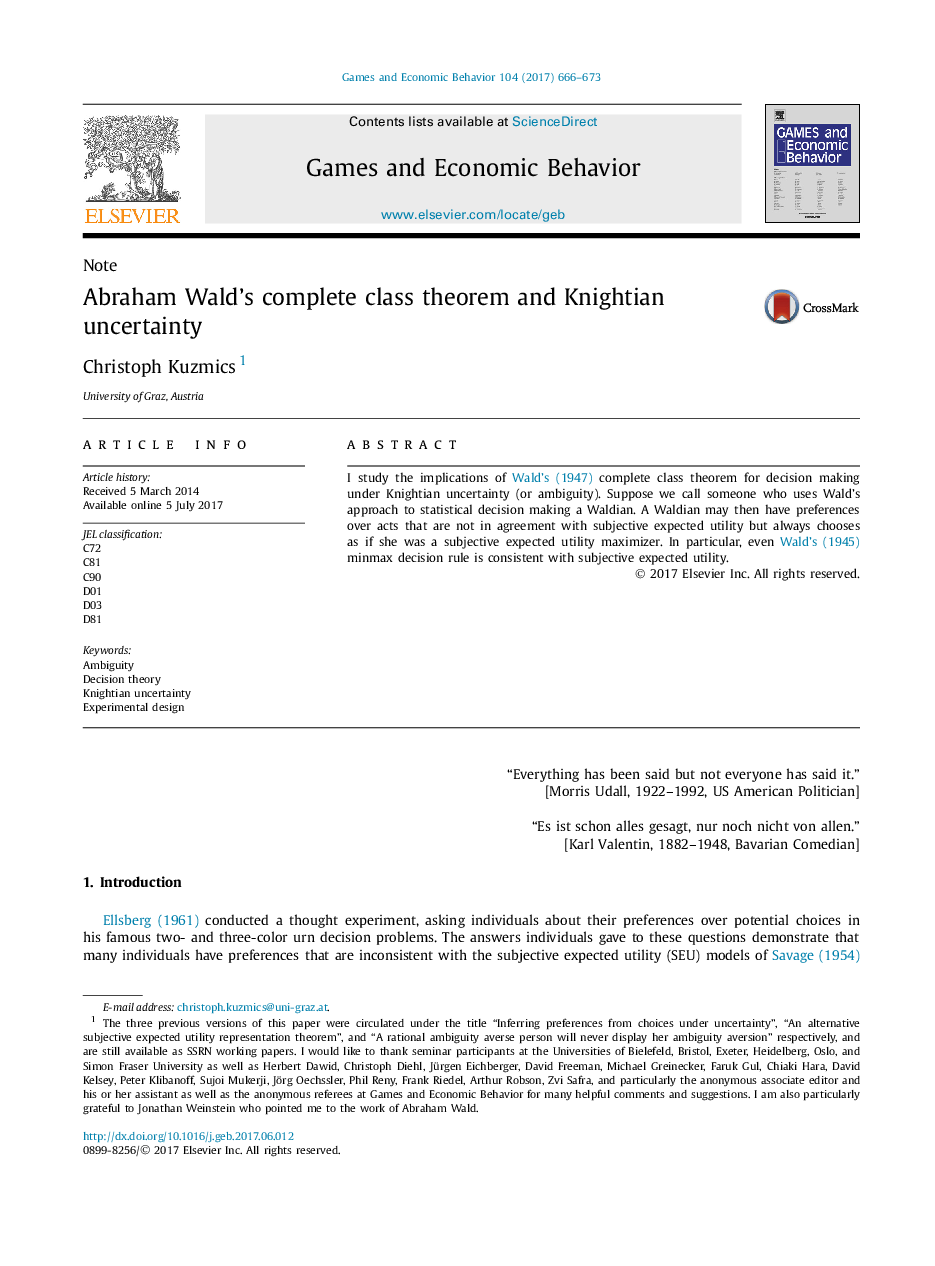| Article ID | Journal | Published Year | Pages | File Type |
|---|---|---|---|---|
| 5071364 | Games and Economic Behavior | 2017 | 8 Pages |
Abstract
I study the implications of Wald's (1947) complete class theorem for decision making under Knightian uncertainty (or ambiguity). Suppose we call someone who uses Wald's approach to statistical decision making a Waldian. A Waldian may then have preferences over acts that are not in agreement with subjective expected utility but always chooses as if she was a subjective expected utility maximizer. In particular, even Wald's (1945) minmax decision rule is consistent with subjective expected utility.
Related Topics
Social Sciences and Humanities
Economics, Econometrics and Finance
Economics and Econometrics
Authors
Christoph Kuzmics,
